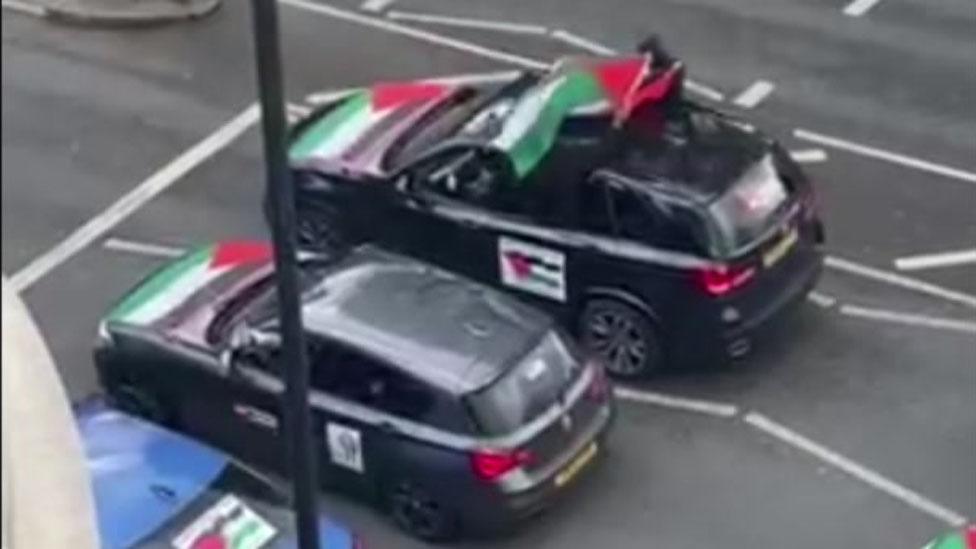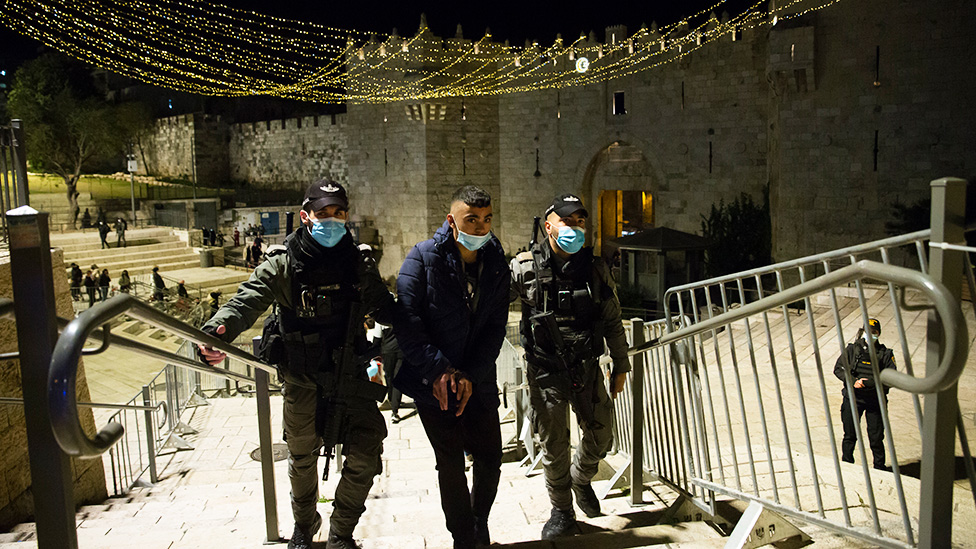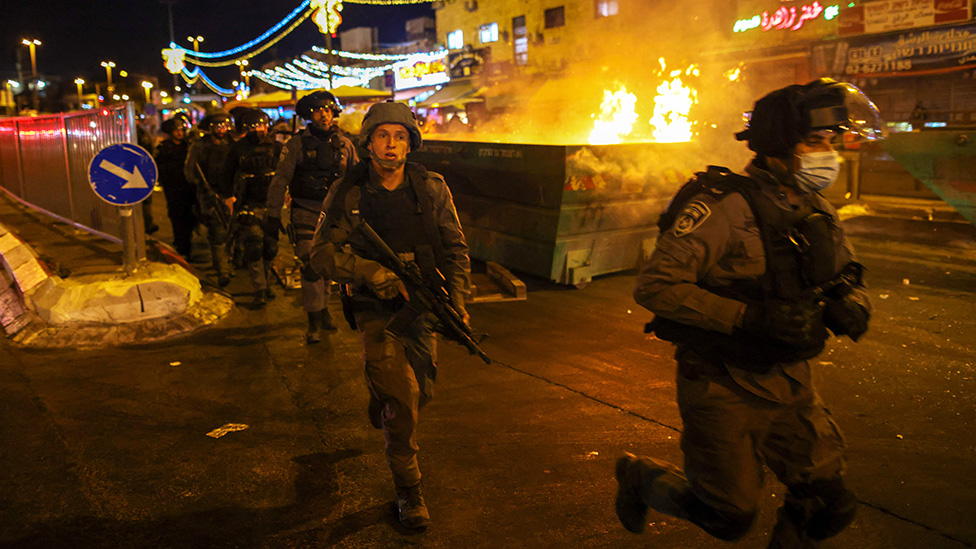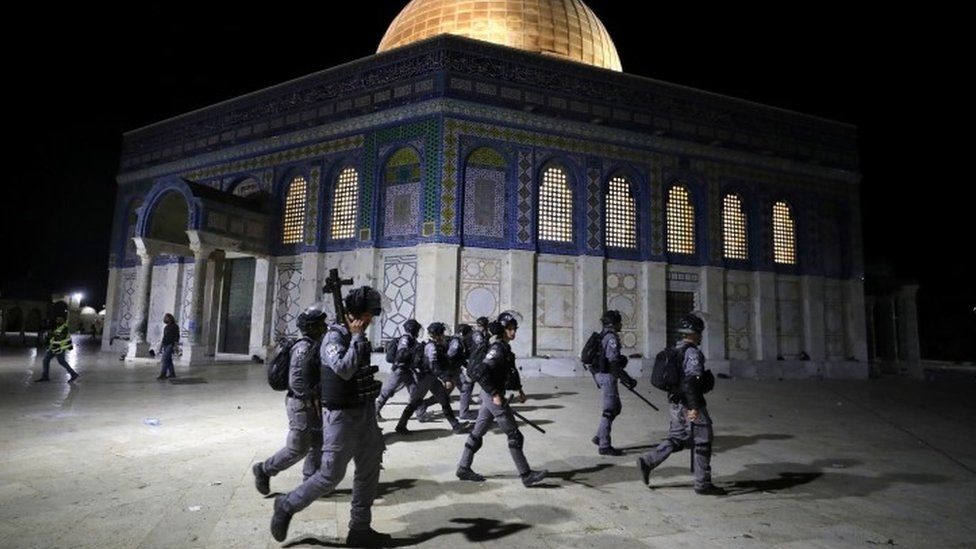Israel launches new strikes on Gaza as calls for ceasefire grow
- Published
Israeli air strikes bombard Gaza Strip
Israel conducted dozens of air strikes on the Gaza Strip on Monday, after Palestinian militants fired barrages of rockets at southern Israeli cities.
The pre-dawn raids on Gaza were some of the heaviest seen since the fighting began a week ago.
Israel said it hit facilities belonging to the militant group Hamas and several commanders' homes, but main roads and power lines were also damaged.
There were no immediate reports of casualties following the strikes.
People in Gaza have told of their fear. "I was getting ready to die. I had to be at peace with it," Najla Shawa, a Palestinian humanitarian worker and mother of two, told the BBC.
Describing previous air strikes over the weekend, she said: "People we know [were killed], people we work with... ordinary people, professional people, young and old."
The Israeli military said more than 50 warplanes conducted a 20-minute attack on the Gaza Strip shortly before dawn on Monday.
They struck 35 "terror targets" and destroyed more than 15km (9.3 miles) of an underground tunnel network belonging to Hamas, it added.
The military also said it had hit the homes of nine "high-ranking" Hamas commanders. Israeli soldiers also fired artillery from positions near the Gaza border.
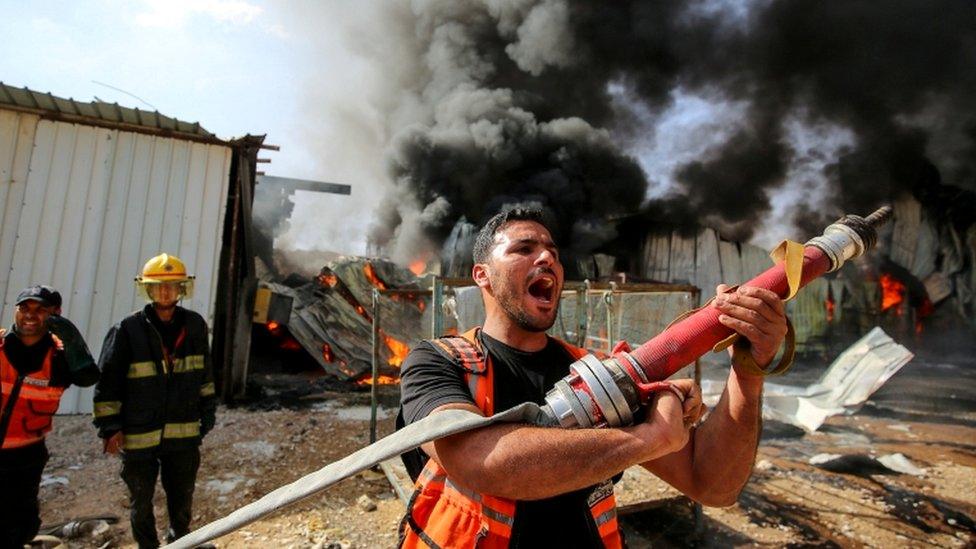
Israel said the air strikes hit Hamas targets, but homes and other buildings were also damaged
The fighting began after weeks of rising Israeli-Palestinian tension in occupied East Jerusalem that culminated in clashes at a holy site revered by both Muslims and Jews. Hamas, which controls Gaza, began firing rockets after warning Israel to withdraw from the site, triggering retaliatory air strikes.
Israel says more than 3,000 rockets have been fired into the country over the past week.
On Monday, rocket warning sirens sounded again, in several areas around southern Israel. One rocket hit an apartment building in the city of Ashdod and several people were reportedly hurt.
Palestinian officials in Gaza, meanwhile, said the overnight strikes had caused widespread power cuts and damaged hundreds of homes and other buildings.
"Slept for 3 hours - we are physically safe but had one of the [most] difficult nights," one resident wrote on Twitter.
The overall death toll in the territory now stands at 200, including 59 children and 35 women, with 1,305 injured, according to the Hamas-run health ministry. Israel says more than 130 militants are among the dead - but Hamas has not recognised this.


International calls for a ceasefire have continued to mount.
Egypt's President Abdul Fattah al-Sisi said on Monday that his country was "going to great lengths to reach a ceasefire... and hope still exists".
The UN Security Council held an emergency meeting on Sunday, and Secretary-General António Guterres warned that further fighting had "the potential to unleash an uncontainable security and humanitarian crisis".
He pleaded for an immediate end to the "utterly appalling" violence.

How likely is a ceasefire?
By Paul Adams, BBC diplomatic correspondent, Jerusalem
Is Israel's military operation in Gaza, dubbed "Guardian of the Walls", nearing its conclusion?
Not obviously. Israeli Prime Minister Benjamin Netanyahu said the attacks are continuing with "full force" and will "take time".
In a news conference on Sunday, he admitted there were "pressures" but thanked US President Joe Biden, in particular, for his support.
Mr Biden's envoy, Hady Amr, has been in Israel since Friday, discussing the crisis with Israeli officials.
Since the US, like Israel and many other countries, regards Hamas as a terrorist organisation, Mr Amr will not be meeting one of the two warring parties.
Any messages for Hamas will have to go through traditional interlocutors, such as Egypt or Qatar.
Local reports suggest Hamas has been offering some kind of ceasefire for several days, only to be rebuffed by Israel, which clearly wants to inflict as much damage as it can on the militants before the fighting is finally brought to a close.
These episodes follow a familiar pattern: Israel presses home its undoubted military advantage until the international outcry over civilian casualties, and a deteriorating humanitarian situation in Gaza, demand that the operation end.
In Israel's estimation, we have not reached that point yet.

The Israeli strikes followed Palestinian rocket attacks targeting the southern Israeli cities of Beersheba and Ashkelon just after midnight on Monday.
Ten people, including two children, have been killed in rocket attacks on Israel in the past week. Israeli officials say they have seen the highest ever concentration of rocket attacks in that time.
The country's Iron Dome defence system is said to have intercepted 90% of the rockets. But some have caused damage to cars and buildings, including the Yad Michael synagogue in Ashkelon, where a hole was blasted through the wall just before a Sunday evening service for the Jewish holiday of Shavuot.
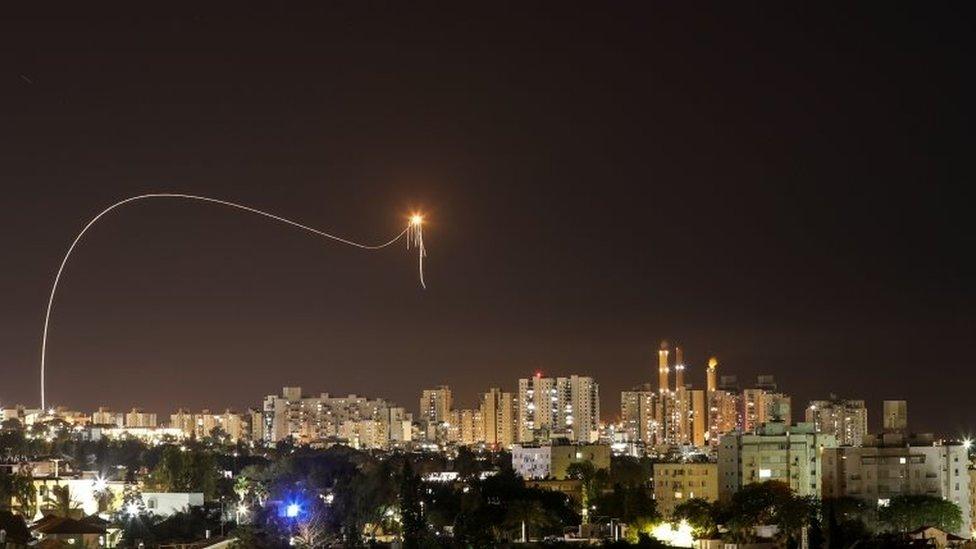
Israel says more than 3,000 rockets have been launched by Palestinian militants over the past week
Officials in Gaza said Sunday had been the deadliest day of the flare-up so far, with emergency workers spending the day trying to rescue people from under debris.
The UN has also warned of fuel shortages in Gaza which could lead to hospitals and other facilities losing power.
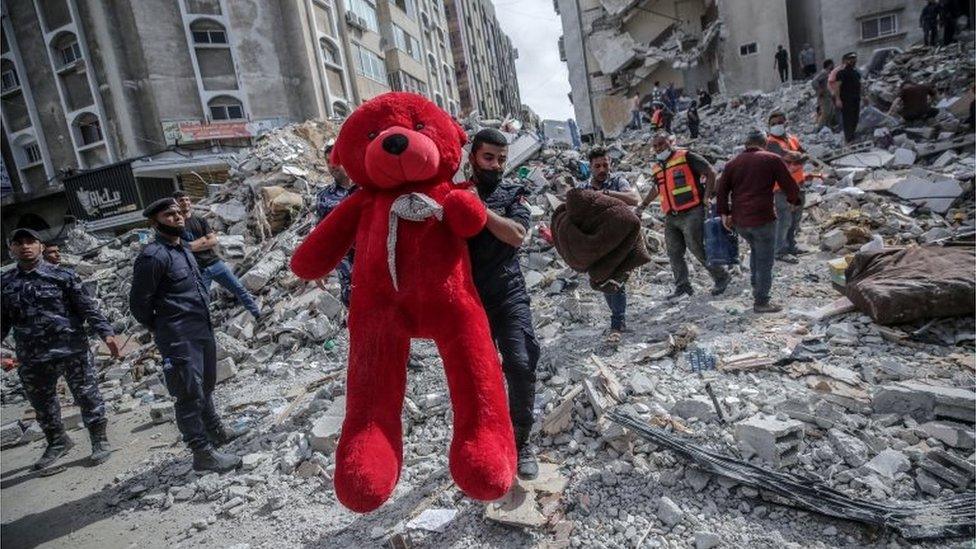
Rescuers in Gaza have spent much of the day searching through the debris of the strikes
Lynn Hastings, UN deputy special co-ordinator for the Middle East peace process, told the BBC that she had appealed to Israeli authorities to allow the UN to bring in fuel and supplies but was told it was not safe.
The UN Security Council has been unable to agree on a public statement in recent days and none was forthcoming after Sunday's meeting.
The United States - a strong ally of Israel - is said to be the hold-out, believing it would be unhelpful in the diplomatic process.
President Biden has publicly backed Israel's right to self-defence, but he has said his administration is working with all parties to achieve de-escalation. "My hope is that we'll see this coming to conclusion sooner rather than later," he said of the fighting last week.

- Published16 May 2021
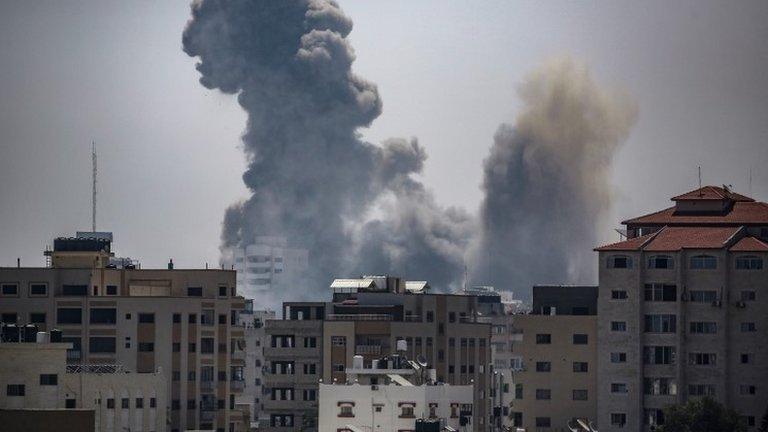
- Published16 May 2021
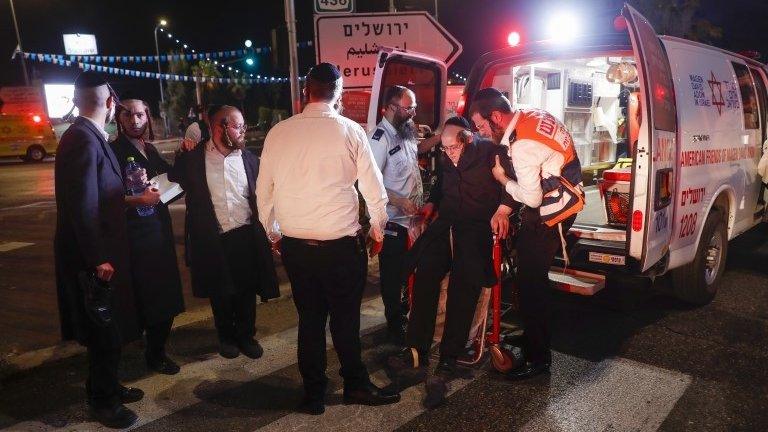
- Published16 May 2021
